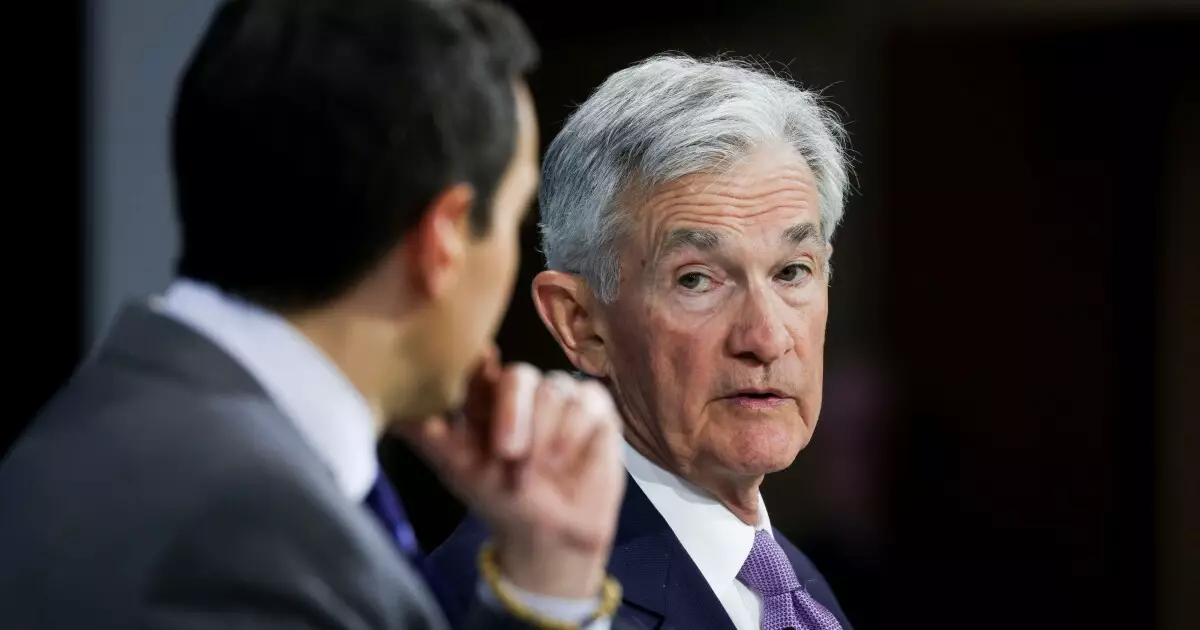The Dynamics of Federal Reserve Independence Amid Political Pressures

In the complex interplay between government agencies and political administrations, the role of the Federal Reserve (Fed) often comes to the forefront, particularly regarding its independence in monetary policy. Recent remarks by Fed Chair Jerome Powell during an onstage discussion at the New York Times’ Dealbook Summit provide insight into the current state of this independence and the potential challenges it faces under political administrations, particularly following the Trump campaign promises.
The concept of a ‘shadow Fed chair’ emerged when Scott Bessent, a leading financial figure and political advisor, suggested the potential for an individual to exert significant influence over the Fed without official authority. This notion, while contentious, raises valid questions about power dynamics within economic policy-making. However, Powell has firmly dismissed concerns about a shadow chair undermining his authority, emphasizing that such a scenario is not a realistic concern. His assertion reflects a confidence in institutional integrity that has, historically, been a hallmark of the Federal Reserve’s operations.
Bessent’s comments suggest a strategic maneuvering aimed at controlling Fed narratives and outcomes, emphasizing the importance of forward guidance—a tool that helps shape market expectations about future economic policy. This indicates a shift in how policy can be influenced even before changes occur, casting a shadow over Powell’s capacity to manage Fed policy effectively in its final year of his tenure, which ends in 2026.
Amidst these discussions, Powell underscored the long-standing, cooperative relationship between the Fed and the Treasury Department, highlighting their weekly meetings that have ensued for over three-quarters of a century. This foundational trust facilitates a collaborative environment particularly vital during economic crises. Powell’s confidence in maintaining a productive relationship with the Trump administration showcases his commitment to ensuring that traditional boundaries of institutional function are respected while still participating in dialogues that shape economic policy.
Clearly, both parties recognize the necessity of mutual respect, especially as guidelines and statutes clearly demarcate the roles of the Treasury and the Fed. Powell’s approach reiterates that while the Treasury can influence fiscal policy, the Fed’s economic policy decisions must autonomously reflect the conditions of the economy rather than political agendas.
One of the notable assertions made by Powell is the fundamental importance of the independence of the Federal Reserve. He articulates that the ability to make decisions free from political coercion is essential for ensuring that the central bank acts with the broader interest of American citizens in mind. Powell’s remarks highlight that, despite being a creation of Congress and not bound by the Constitution, the Fed must operate independently to make decisions that will benefit the economy as a whole, avoiding favoritism toward any political party or agenda.
This stance is particularly crucial given the incoming administration’s vocal assertions regarding greater influence over monetary policy. Powell’s reluctance to engage directly with such political statements shows an adherence to a policy of non-engagement, reinforcing the Fed’s operational independence as a safeguard against potential overreach.
Transitioning to the broader economic implications of Trump’s proposed tariffs, Powell indicated that evaluating these measures requires careful consideration of various unknowns. The potential impact on the economy will depend heavily on the tariffs’ scale and duration, making preemptive policy adjustments premature. This cautious approach underscores the Fed’s role as a stabilizing entity that bases decisions on empirical economic data rather than speculative forecasts influenced by political declarations.
Additionally, Powell touched on the emerging realm of cryptocurrency and its intersection with traditional banking. He emphasized that while the Fed’s involvement in regulating digital assets is limited, it must ensure the health and stability of the banking system. As cryptocurrency continues to shape financial dynamics, maintaining consumer protection standards remains a critical priority for the Fed.
The future of the Federal Reserve, particularly in politically charged environments, hinges upon its ability to navigate the delicate balance between maintaining independence and fostering constructive relationships with administrations. While challenges such as potential shadows of political influence loom, Powell’s commitment to the institution’s core values offers a reassuring perspective on the Fed’s ongoing role in safeguarding the economy’s health. As economic uncertainties evolve, so too will the Fed’s strategies, driven by a mission that transcends political affiliations to ultimately serve the American public.





